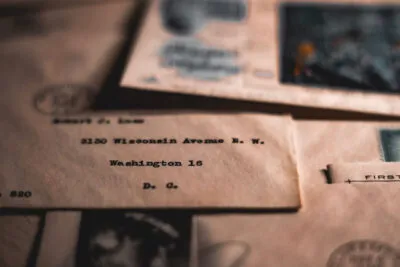- Originally Published on October 22, 2024
5 Tips For Protecting Your Privacy as an Adult Content Creator

Get Help Right Away.
TRANSCRIPT
Introduction
If you’ve made adult content, you know that online privacy is crucial. I’m going to point out some common blind spots so you can stay safe and secure.
Hi, I’m Michelle, an attorney with several years of experience working with people in the adult entertainment industry. I help secure their content and build a positive online presence in our niche area of law. I’ve seen firsthand the devastating impact that leaks and non-consensual sharing can have on a creator’s life and career.
Many creators take for granted that leaks and exposure are par for the course, but you can take action. I’ll explain strategies that I recommend to my clients to secure your content, monitor your online presence, and respond to common online threats.
Whether you’re new to the industry or a seasoned pro, this video has something for you.
Securing Your Accounts
For adult content creators, your work and personal accounts should never overlap. You should separate usernames, emails, payment processors, etc. But did you remember to use different passwords?
Why Are Strong Passwords Important?
Strong passwords prevent hackers from gaining access to your accounts and stealing your content. A strong password should:
- Be at least 12 characters long
- Use a mix of uppercase and lowercase letters, numbers, and symbols
- Avoid common words or phrases
Check out Useapassphrase.com to see how long it would take to crack your chosen passphrase.
What is Two-Factor Authentication?
Even if someone guesses your password, they won’t be able to access your account with two-factor authentication (2FA). This could involve:
- A code sent to your phone
- A fingerprint scan
- A physical security key
By using strong passwords and enabling 2FA, you’ll make it much harder for hackers to access your accounts.
Protecting Your Content
Now that your accounts are secure, let’s move to protecting your content itself.
What Are Watermarks and How Do They Protect Your Content?
Watermarks contain your name, logo, or website URL and help identify your content as yours. They act as a deterrent to content thieves, making it less attractive to steal and repost. They also make it easier for you to search for leaks and prove ownership if your content is stolen.
What Are Unique Identifiers?
Unique identifiers are hidden codes or metadata embedded in your content files. Unlike watermarks, they don’t visibly alter the content but still allow you to prove ownership and track where your content ends up online. Tools like DigiMark can add these identifiers to your content.
You can even use different unique identifiers for each client, allowing you to trace leaked content back to the individual who received it.
Monitoring Your Online Presence
Even with the right precautions, it’s important to monitor where your content ends up online.
What Are Google Alerts and How Do You Set Them Up?
Google Alerts is a free tool that sends you email notifications when new search results appear for specific keywords or phrases. You can set up alerts for:
- Your name
- Your website
- Unique phrases from your content
If someone posts your content without permission, you’ll get an alert and can take action. To set up an alert:
- Go to google.com/alerts
- Enter your search terms
- Choose your settings
- Click “Create Alert”
Other Tools to Search for Your Content
- Google’s Reverse Image Search: Find reposted versions of your photos.
- Paid Tools: Services like Pimeyes, TinEye, or CopyScape can automate the process of searching for your content.
What Should You Do If Your Private Information is Leaked?
If you’re doxxed or your financial information is leaked:
- Change all your passwords
- Cancel compromised credit cards
- Contact your bank
Services like DRP monitor the deep and dark web for leaks of your information. Subscribing to such services ensures your info is being monitored 24/7 with the support of cybersecurity experts.
Enforcing Content Usage Agreements
If you sell or share your content with others, have a clear, legally binding agreement outlining how it can be used.
What Should a Content Usage Agreement Include?
A content usage agreement should specify:
- How the content can be shared or modified
- How to attribute the content to you
- How long the content can be used
- That you retain the copyright
Include a short agreement statement in your bio or content description, making it impossible to miss.
How Do You Enforce a Content Usage Agreement?
If someone violates your content usage agreement:
- Send a DMCA takedown notice to the website or platform hosting the content.
- If that doesn’t work, send a cease and desist letter demanding the person stop using your content.
- In serious cases, legal action may be necessary with the help of an attorney.
Having a clear signed agreement will give you a stronger case in any of these scenarios.
Responding to Online Threats
Some bad actors may use your content against you through threats or blackmail.
How Should You Respond to a Threat to Leak Your Content?
- Stay calm and avoid engaging with them directly.
- Document everything, including screenshots and any other evidence.
- Report the user to the platform for violating Terms of Service.
In some communities, you can add the user to blacklists created by other members. You may also want to consult with an attorney experienced in these cases.
What Should You Do If Someone Tries to Blackmail You?
If you’re blackmailed, do not give in to their demands. Instead:
- Report the blackmail attempt to online platforms.
- Preserve all evidence.
- Consider seeking help from a victim’s advocate or support organization.
Monitoring for Impersonation Accounts
It’s too common for adult content creators’ images to be used by extortionists to scam others. Monitoring your leaked content also involves keeping an eye on impersonation accounts.
What Should You Do If You Find an Impersonation Account?
If someone is using your photo or pretending to be you:
- Report the profiles to the platform.
- Use the same strategy you would for non-consensual content.
These scammers can harm your reputation, so staying on top of such accounts is crucial.
Conclusion
I hope this video has provided practical strategies to protect your privacy as an adult content creator. You deserve to feel safe and in control of your online presence.
If you’re struggling with non-consensual image sharing, online harassment, defamation, or invasion of privacy, the team at Minc Law is here to support you. Contact us by filling out our contact form, using our live chat, or calling the number on the screen. Our intake team offers a confidential free case evaluation.
We’re on your side and advocate for your right to work and live with peace of mind.
I’m Michelle McBride Simonelli, and I’ll see you in the next video.
END OF TRANSCRIPT
This page has been peer-reviewed, fact-checked, and edited by qualified attorneys to ensure substantive accuracy and coverage.



